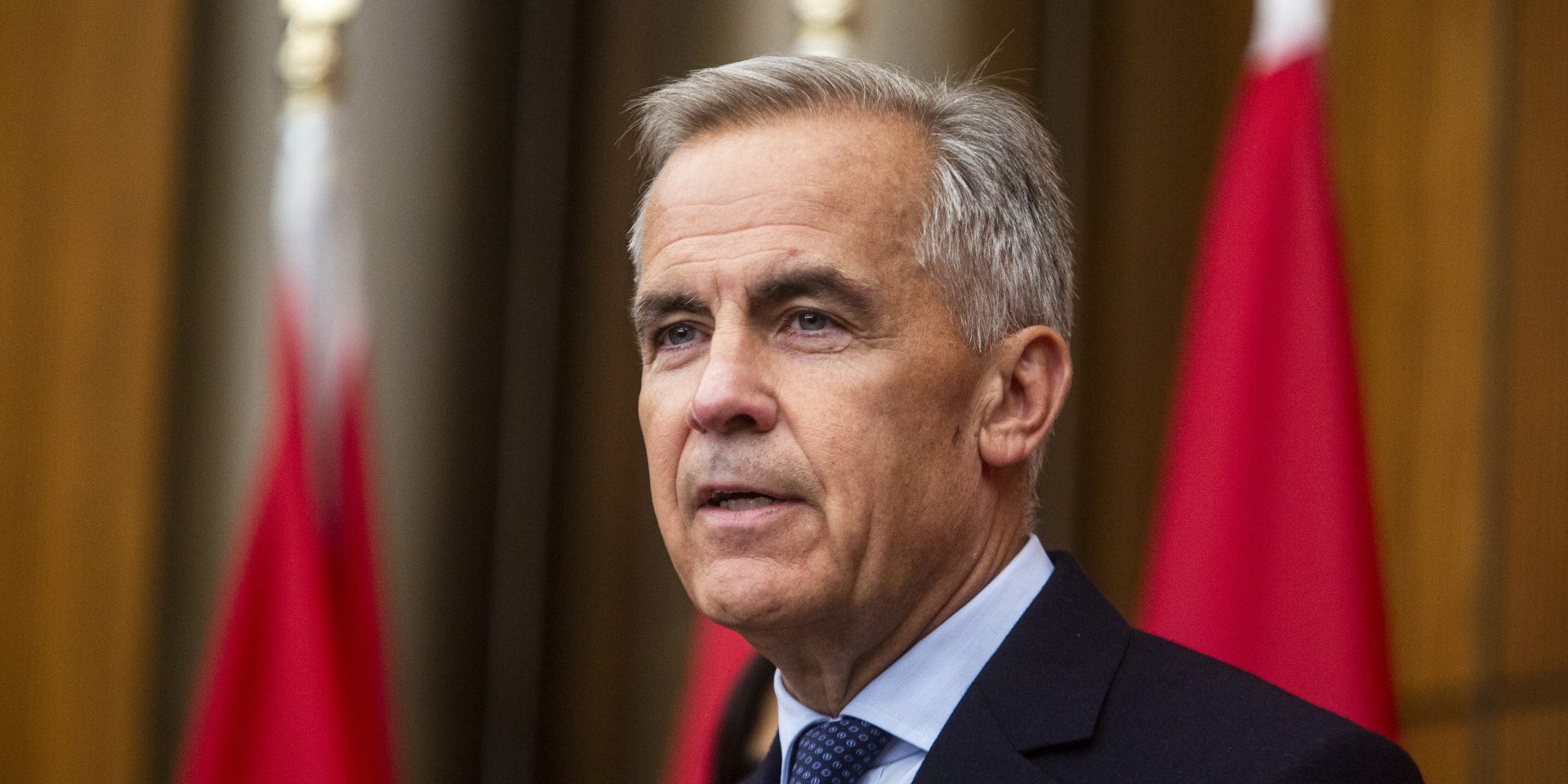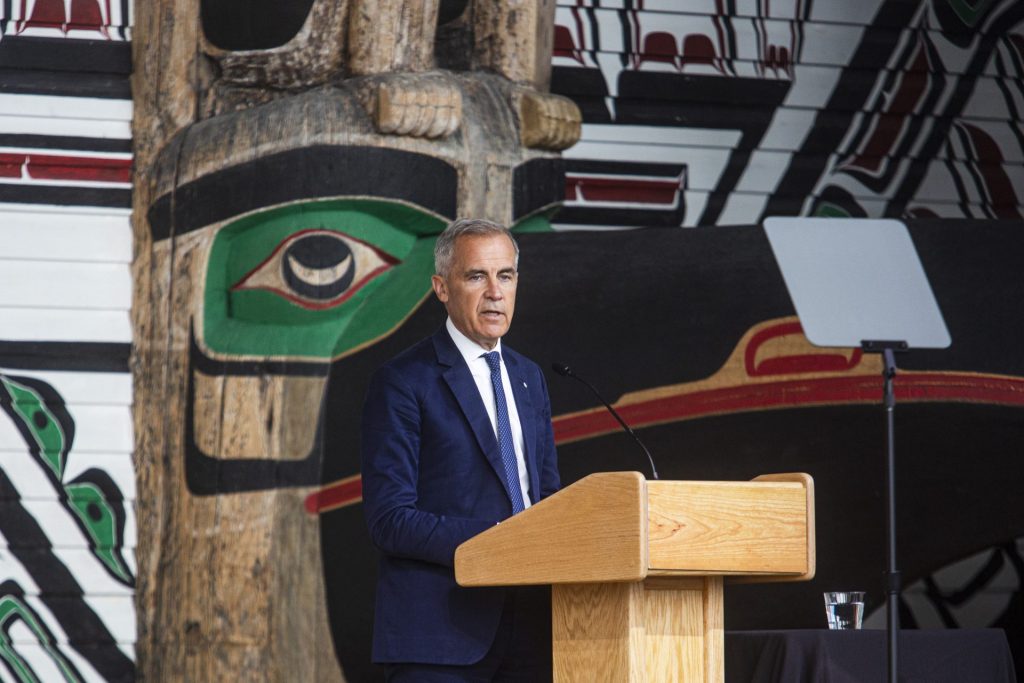Calls mount for the Arctic to make national-interest list with launch of Major Projects Office: there’s an ‘Achilles heel in the North’

The Liberals’ Major Projects Office is now up and running, and two Nunavut project proponents are eager to make the cut for the prime minister’s prized national-interest list, but one chief is raising concerns about minimal communication from the government as it eyes a port project in northern Manitoba.
“Other regions in Canada have had their time come. They’ve had a light shone on them,” said Nukik Corporation CEO Anne-Raphaëlle Audouin. She said the corporation has been lobbying the federal government for years to build support for the Kivalliq Hydro-Fibre Link project.
“We feel in Nunavut that it’s Nunavut’s time, and I hope that we see it reflected in the list.”
The Inuit-led corporation’s project would stretch 1,200 kilometres, interconnecting with Manitoba’s grid and stretching through to Kivalliq, Nvt. This would connect five communities in Canada’s Arctic to renewable power and fibre optic.
“We’ve spoken to every single decision-maker that you could think of, probably, over the past five to eight years,” Audouin said. “There is a very broad level of support for the project.”

She said the corporation is “very interested” in the build “having a home” under the Major Projects Office (MPO) as it would mean there would be a team focused on the “how,” which would cut down on “going back to the drawing board” and having to re-pitch the project.
The MPO, which was launched officially on Aug. 29, will be headed by former Trans Mountain Corporation CEO Dawn Farrell and headquartered in Calgary, Alta.
It will have two functions: speeding up regulation approvals, and co-ordinating project funds. The government also said the office will reduce approval times down to a maximum of two years.
The office’s launch has already drawn criticism. In a French statement released Aug. 29, Bloc Québécois environment and climate change critic Patrick Bonin (Repentigny, Que.) said Farrell’s appointment means projects will be in the hands of a “pipeline apostle,” saying the government rolled “out the red carpet for oil and gas companies” with its passage of Bill C-5.
That legislation, the controversial One Canadian Economy Act, grants cabinet the authority to fast-track projects considered in the national interest. The act says projects that could make the list include those that foster trade, connect the country and “get goods to market,” strengthen Canada’s trade, and enhance natural resource, energy, and infrastructure development.
North ‘100 per cent supported’ by foreign products: Audouin
Audouin said the Kivalliq Hydro-Fibre Link meets the criteria, but that government officials are being “cautious about what they tell proponents,” so she’s unsure if it will make the cut for the list. The project is set to have “shovels in the ground” by 2028 and commissioned by 2032, she said.
The government has said the first set of nation-building projects will be announced “in the coming weeks.”
Audouin emphasized that Nunavut is in “dire need of infrastructure” because the territory relies almost exclusively on diesel, which is imported as Nunavut does not have electricity infrastructure connecting it to the rest of Canada. The fuel it relies on is purchased in the summer, and then stored in facilities year round. She said that’s why the corporation is “fighting hard to be on the list.”
“It’s very important for decision-makers—and quite frankly, Canadians at large—to understand that it’s a very real Achilles heel in the North,” she said. “We are 100-per-cent supported … by foreign products, by foreign systems, and that doesn’t build a resilient society.”
Audouin’s isn’t the only northern project lobbying to get on the list. The Grays Bay Road and Port project, a transportation infrastructure link that would connect Arctic shipping routes with southern Canada, is also hoping it will make the cut.

The Inuit-owned West Kitikmeot Resources Corporation (WKR) is a proponent of the northernmost segment of the project, which would start in Grays Bay, Nvt. The corridor would connect with a provincial road in the Northwest Territories. The territorial government is heading the southern segment.
WKR CEO Brendan Bell said Canada needs a “better presence” in the Arctic, and needs to improve the region’s infrastructure. Bell pointed to the advantage of having the Canadian military able to dock in the Northwest Passage and connect onto a national highway system as a boost to national security.
He also said the current geopolitical situation provides an opportunity for the North.
“We’ve got a prime minister who recognizes that there are a whole number of other geopolitical events unfolding, but it’s almost a bit of a perfect storm for the North to play catch up,” Bell said.
Speaking about other investment competitors, Bells said, “The North needs this infrastructure investment, and it needs far more than this. I think this is a good start, and we keep going.”
He added that he’s been “encouraged” by conversations with the government so far.
But Carney (Nepean, Ont.) has been eyeing port projects in Manitoba and Quebec in recent days. The prime minister is backing a project to redevelop the Port of Churchill in northern Manitoba, which could open the door for increased trade with Europe, as potentially “one of the first” major infrastructure projects. He has also signalled support for a port in Contrecoeur, Que., which is northeast of Montreal.
First Nations ‘surprised’ by Port of Churchill pledge
But Acting Grand Chief of the Assembly of Manitoba Chiefs Heidi Cook said she had “hoped” the development of the MPO would have been done “in partnership with First Nations” to ensure the office would be grounded in a respect for treaty rights.
She said there hasn’t been much communication with the government since Carney’s First Nations summit in July, where the prime minister met with Indigenous leaders, hoping to quell fears raised around his nation-building legislation.

“I’m concerned that the office just doesn’t become another federal body that expedites national interest projects at the expense of our lands and our waters and our rights,” Cook said.
She said that nations affected by the proposed Port of Churchill project haven’t been in communication with the government either.
“The prime minister announcing the Port of Churchill came as a surprise to a lot of the First Nations in northern Manitoba,” she said, emphasizing that the project needs to go ahead with those nations’ involvement.
“They should be involved in moving that project forward, rather than … having everything set out and coming to us—it makes consent a lot more difficult if we’re not involved through the process of conceptualizing and designing these projects.”
The government has said the MPO will receive input from an Indigenous Advisory Council. The membership of the council is set to be announced next month.
Jay Khosla, a former second assistant deputy minister for the energy sector of Natural Resources Canada, said he worries about the office’s execution.
In order for MPO to be a success, it needs to have financial co-ordination, regulatory efficiency, Indigenous economic participation, and enabling infrastructure, he said.
Speaking to The Hill Times before the MPO was launched, he said his concern is the office may only be a regulatory body, and not sufficiently involve the three other legs.
He said that one of the sides he worries about is “connecting Indigenous economic participation” as it’s “only in its infancy.”
“Are those Indigenous players able to make quick connects through this office to the right funding source that that can quicken the pace?” said Khosla, who is now the executive director of economic and energy policy for the Public Policy Forum.
“Do you have the expertise? Working with Indigenous Peoples, in my history, takes a lot of relationship building. … You need people who’ve had those relationships.”
He also emphasized the importance of co-ordinated financing in the office, pointing to the use of investment tax credits through to grants and loans.
“You need a good deal of financial expertise to be involving yourself in this space, and Canada can’t afford a wobble on that point,” he said, “because if these projects go in a cost overrun, you’re going to lose public support.”
ewand@hilltimes.com
The Hill Times
Editor’s note: The first sentence of this article was updated on Sept. 2, 2025, to reflect that a chief is raising concerns about government communication related to a northern Manitoba project.






 LICENSING
LICENSING PODCAST
PODCAST ALERTS
ALERTS













